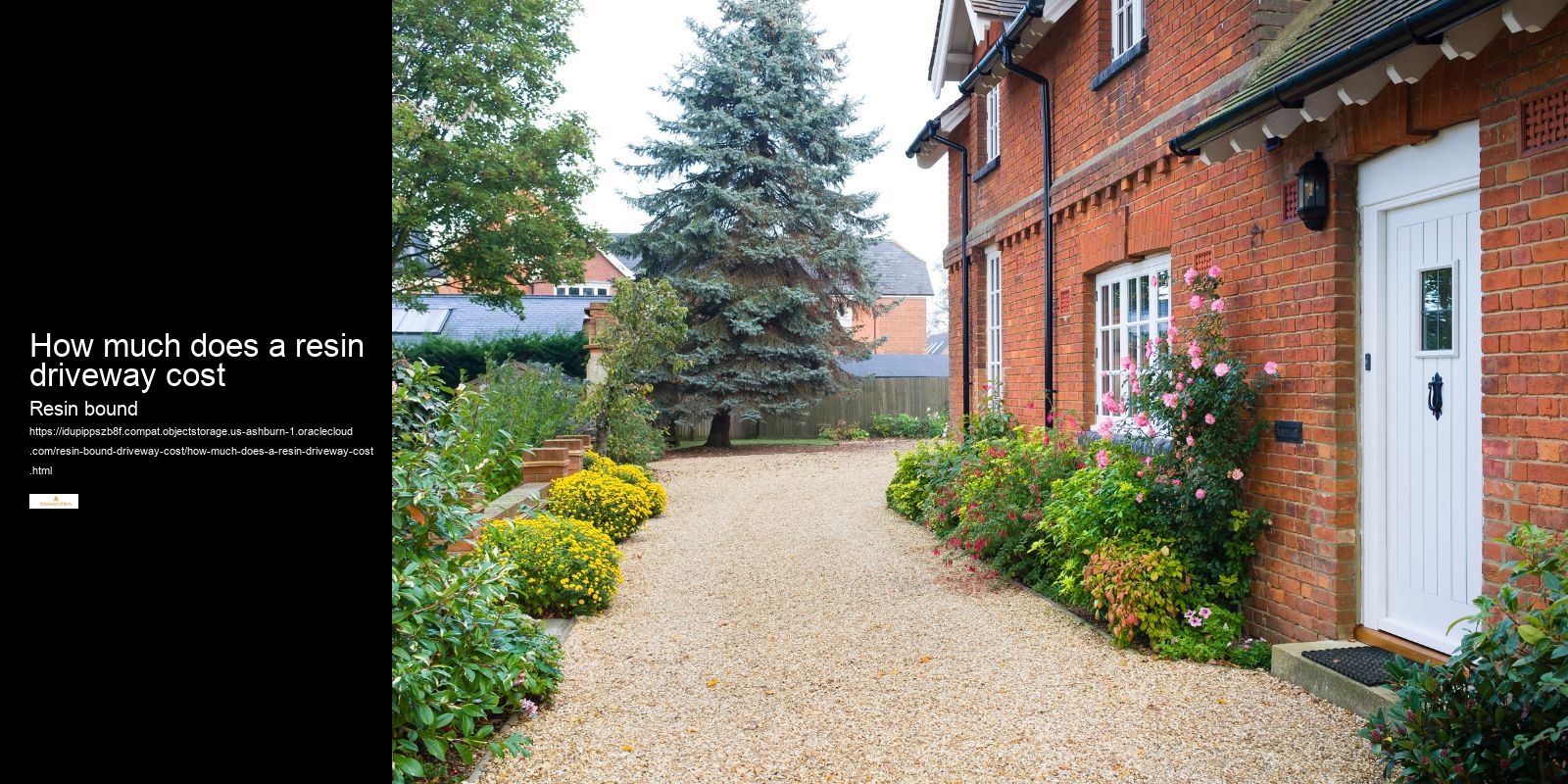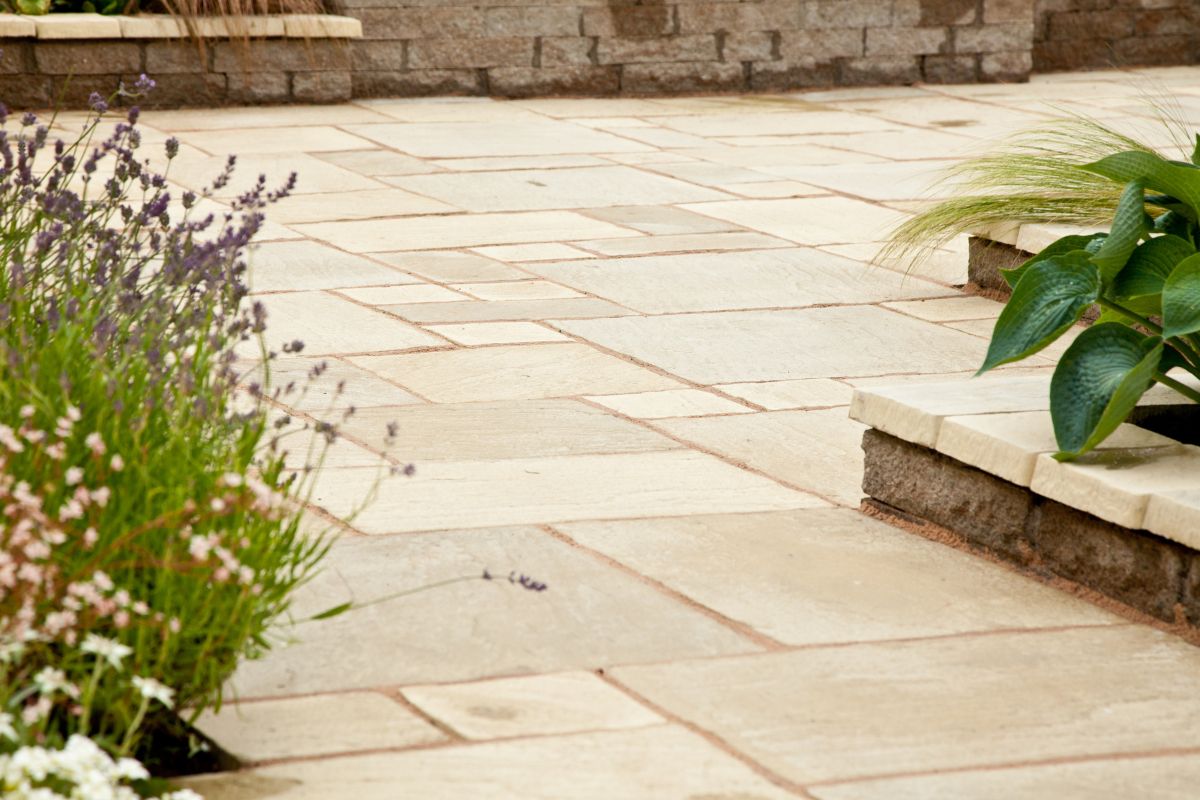
Do Your Own Resin Driveway:
If you have the necessary skills, experience, and tools, it is possible to install your own resin driveway. However, it's important to approach the project with careful planning and preparation. Here are some key steps to consider:
Research and gather information: Familiarize yourself with the process of installing a resin driveway. Understand the materials, equipment, and techniques involved. Refer to reliable resources, instructional videos, and guides.
Assess your capabilities: Evaluate your DIY skills and experience in construction or driveway installations. Installing a resin driveway requires attention to detail and precision. If you feel confident in your abilities, proceed to the next steps.
Prepare the area: Clear the driveway area of any obstacles, debris, or vegetation. Ensure proper drainage by assessing the slope and making necessary adjustments. Excavate and level the ground to create a solid foundation.
How much does a resin driveway costBase preparation: Install a suitable base, which may include a layer of compacted hardcore or crushed stone. Properly compact and level the base to provide stability and support for the resin surface.
Choose the resin type: Select the appropriate resin type for your driveway. There are different resin options available, including resin-bound or resin-bonded systems. Consider factors such as durability, aesthetics, and maintenance requirements.
Mix and apply resin: Follow the manufacturer's instructions to mix the resin and aggregates. Apply the resin mixture evenly over the prepared base, using a trowel or squeegee. Work in small sections to ensure consistent coverage.
Scatter aggregates: Sprinkle the chosen aggregates onto the wet resin surface. Use a rake or brush to distribute the aggregates evenly. Ensure they are fully embedded in the resin, providing a textured and decorative finish.
Allow curing time: Give the resin sufficient time to cure and harden. Follow the recommended curing time provided by the manufacturer. Avoid walking or driving on the surface until it has fully cured.
Clean and maintain: Regularly clean the resin driveway to remove debris and maintain its appearance. Avoid using harsh chemicals or abrasive materials that can damage the surface. Follow proper cleaning techniques recommended for resin driveways.
Seek professional assistance if needed: If you encounter challenges or feel uncertain at any point during the installation process, it's advisable to consult with a professional contractor. They can provide guidance and ensure a successful outcome.
Remember, installing your own resin driveway requires careful attention to detail and adherence to proper techniques. If you are unsure or lack experience, it's best to hire a professional contractor for a seamless and professional installation.
Epoxy Resin Driveway:
An epoxy resin driveway refers to a type of driveway surface that utilizes epoxy resin as the primary binding material. Epoxy resin is a strong and durable substance that, when mixed with aggregates, creates a hard-wearing and long-lasting driveway surface.

Epoxy resin driveways offer several advantages, including excellent resistance to chemicals, oils, and stains. They are also highly durable, capable of withstanding heavy loads and foot traffic.
Additionally, epoxy resin driveways provide a smooth and seamless finish that is visually appealing and easy to maintain. The surface can be customized with various color options and decorative patterns, allowing for personalized designs. It's important to note that the installation of an epoxy resin driveway requires expertise and specialized equipment.
It's recommended to hire professional contractors who are experienced in working with epoxy resin to ensure a high-quality and successful installation. With proper care and maintenance, an epoxy resin driveway can provide a resilient and attractive surface for many years.
External Resin Driveway:
An external resin driveway refers to a resin-based surfacing solution designed specifically for outdoor applications, such as driveways. External resin driveways are formulated to withstand the harsh outdoor elements and provide a durable and long-lasting surface.
These driveways are typically made using a combination of resin and aggregates that are specifically selected for their strength and resilience. External resin driveways offer several benefits. They are resistant to cracking, UV damage, and fading caused by exposure to sunlight.
They also provide excellent water drainage, allowing rainwater to permeate through the surface and reducing the risk of standing water. Additionally, external resin driveways are low-maintenance, requiring minimal cleaning and upkeep. Regular sweeping or gentle washing with a mild detergent is usually sufficient to keep the surface clean and tidy.
It's worth noting that external resin driveways are available in a wide range of colors, textures, and finishes, allowing for customization and creating a visually appealing entrance to your property. When considering an external resin driveway, it's important to choose a reputable contractor with experience in installing outdoor resin surfaces to ensure a successful and durable installation.
Advantages of a Resin Driveway:
A resin driveway offers numerous advantages that make it a popular choice among homeowners. Firstly, it provides a visually appealing surface that can be customized to match various color schemes and styles, enhancing the overall curb appeal of a property.
Additionally, resin driveways are highly durable and resistant to cracking, fading, and UV damage, ensuring longevity and reducing the need for frequent repairs or maintenance. They are also permeable, allowing rainwater to drain through the surface, which helps to prevent flooding and eliminates the need for additional drainage systems. Furthermore, resin driveways are smooth and comfortable to walk or drive on, offering a safe and slip-resistant surface.
With its seamless finish, a resin driveway is also resistant to weed growth, making it a low-maintenance option. Overall, the advantages of a resin driveway include its aesthetic appeal, durability, permeability, low maintenance requirements, and safety features, making it a practical and attractive choice for homeowners.
Alternative to Resin Driveway:
While resin driveways have gained popularity, there are alternative options available for those seeking different surfacing materials. One popular alternative is block paving, which involves arranging interlocking blocks to create a durable and visually appealing driveway. Block paving offers versatility in design, allowing for various patterns, colors, and textures. It also provides excellent load-bearing capacity and can withstand heavy traffic.
Another alternative is concrete, known for its strength and durability. Concrete driveways can be customized with various finishes, such as stamped or stained concrete, to achieve different aesthetic effects. They are also relatively low maintenance and can withstand harsh weather conditions. Additionally, natural stone, such as granite or sandstone, can be used to create a unique and elegant driveway.
Natural stone driveways offer a timeless appeal, durability, and resistance to fading. Each of these alternatives provides homeowners with different options to suit their preferences, budget, and the overall style of their property.
Anthracite Resin Driveway:
An anthracite resin driveway refers to a type of resin-bound or resin-bonded driveway that utilizes anthracite-colored aggregates. Anthracite is a dark gray to black coal-like substance that is commonly used in construction materials. When used in a resin driveway, anthracite aggregates create a sleek and sophisticated appearance.
The size, shape, and condition of your existing driveway play a significant role in the overall cost. If your base is old or damaged, it may require extensive groundworks or the installation of a new concrete or tarmac base, which increases costs. Additionally, larger driveways with intricate curves or borders may require more preparation work and materials compared to smaller, simpler spaces.
UV protection is an important consideration for resin driveways. UV stable resins are more expensive but offer benefits such as preventing discoloration and deterioration caused by prolonged sun exposure. Investing in a higher-quality UV stable resin ensures long-lasting durability and maintains the aesthetic appeal of your driveway over time, making it a worthwhile investment despite the slightly higher initial cost.